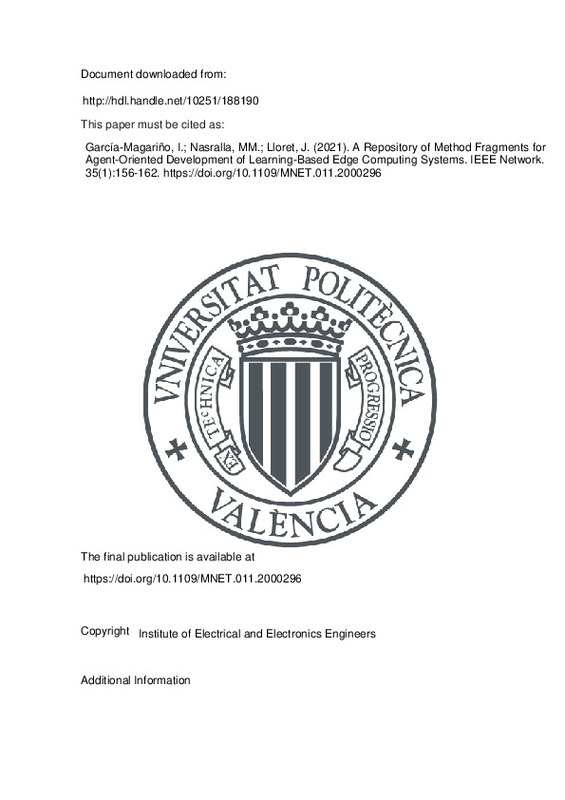JavaScript is disabled for your browser. Some features of this site may not work without it.
Buscar en RiuNet
Listar
Mi cuenta
Estadísticas
Ayuda RiuNet
Admin. UPV
A Repository of Method Fragments for Agent-Oriented Development of Learning-Based Edge Computing Systems
Mostrar el registro completo del ítem
García-Magariño, I.; Nasralla, MM.; Lloret, J. (2021). A Repository of Method Fragments for Agent-Oriented Development of Learning-Based Edge Computing Systems. IEEE Network. 35(1):156-162. https://doi.org/10.1109/MNET.011.2000296
Por favor, use este identificador para citar o enlazar este ítem: http://hdl.handle.net/10251/188190
Ficheros en el ítem
Metadatos del ítem
| Título: | A Repository of Method Fragments for Agent-Oriented Development of Learning-Based Edge Computing Systems | |
| Autor: | García-Magariño, Iván Nasralla, Moustafa M. | |
| Entidad UPV: |
|
|
| Fecha difusión: |
|
|
| Resumen: |
[EN] The upcoming avenue of IoT, with its massive generated data, makes it really hard to train centralized systems with machine learning in real time. This problem can be addressed with learning-based edge computing systems ...[+]
|
|
| Palabras clave: |
|
|
| Derechos de uso: | Reserva de todos los derechos | |
| Fuente: |
|
|
| DOI: |
|
|
| Editorial: |
|
|
| Versión del editor: | https://doi.org/10.1109/MNET.011.2000296 | |
| Código del Proyecto: |
|
|
| Agradecimientos: |
The authors acknowledge PSU Smart Systems Engineering Lab, project "Utilisation of IoT and sensors in smart cities for improving quality of life of impaired people" (ref. 52-2020), CYTED (ref. 518RT0558), and the Spanish ...[+]
|
|
| Tipo: |
|







![[Cerrado]](/themes/UPV/images/candado.png)


